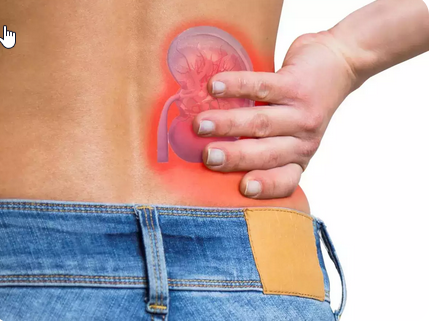Kidney stones are a common health issue affecting many individuals worldwide. These small, hard deposits that form in the kidneys can cause significant pain and discomfort. Let’s explore what kidney stones are, how they form, their causes, precautionary measures, and treatment options.
What are Kidney Stones?
Kidney stones, also known as renal calculi, are solid crystals made up of minerals and salts that accumulate in the kidneys. They vary in size, from as small as a grain of sand to as large as a golf ball. These stones can obstruct the urinary tract, causing intense pain and potential complications.
How are Kidney Stones Formed?
Kidney stones develop when certain substances in the urine, such as calcium, oxalate, and phosphorus, become highly concentrated. Over time, these substances can crystallize and form stones. Dehydration, certain medical conditions, and a family history of kidney stones can increase the risk of their formation.
Causes of Kidney Stones:
1. Dehydration: When the body lacks an adequate amount of water, the urine becomes more concentrated. Concentrated urine means there's less fluid to dissolve minerals, making it easier for crystals to form and unite into kidney stones.
2. Diet: Certain dietary choices can contribute to the formation of kidney stones, particularly those rich in oxalates, such as beets, chocolate, and nuts. Additionally, a diet high in salt can lead to increased calcium in the urine, a factor in stone development.
3. Medical Conditions: Certain medical conditions can predispose individuals to kidney stone formation. Conditions like hyperparathyroidism, where the parathyroid glands produce too much hormone, and urinary tract infections can create an environment conducive to stone development.
4. Family History: Genetics play a role in kidney stone susceptibility. If there's a family history of individuals experiencing kidney stones, it may indicate a genetic predisposition to this condition.
Precautionary Measures:
1. Hydration: Adequate water intake is crucial to keep urine diluted and prevent stone formation. Aim to drink at least 8-10 glasses of water daily to maintain proper urine dilution.
2. Dietary Changes: Reduce consumption of oxalate-rich foods and maintain a balanced, low-salt diet. Consume a diet rich in fruits, vegetables, and whole grains while moderating oxalate intake.
3. Regular Exercise: Stay physically active to promote overall health and reduce the risk of kidney stones.
4. Monitor Calcium Intake: Consult with a healthcare professional to ensure a balanced calcium intake.
5. Regular Check-ups: Periodic medical check-ups can help identify risk factors and address them promptly.
Natural Treatment Options:
1. Hydration: Drinking plenty of water can help flush out small stones and prevent new ones from forming.
2. Dietary Adjustments: Certain natural remedies include consuming lemon juice, apple cider vinegar, or basil tea.
3. Physical Activity: Regular exercise promotes overall health and may help prevent kidney stones.
Medical Treatment Options:
1. Medications: Prescription medications can help manage specific conditions contributing to stone formation.
2. Extracorporeal Shock Wave Lithotripsy (ESWL): This non-invasive procedure uses shock waves to break down stones into smaller fragments.
3. Surgical Intervention: In severe cases, surgical removal of large stones may be necessary.
Understanding kidney stones, their causes, and preventive measures is crucial for maintaining kidney health. By adopting a healthy lifestyle, staying hydrated, and seeking medical advice when needed, individuals can reduce the risk of kidney stones and enjoy optimal well-being. If you experience symptoms or have concerns, consult with a healthcare professional for personalized guidance and appropriate interventions

 Understanding kidney stones, their causes, and preventive measures is crucial for maintaining kidney health. By adopting a healthy lifestyle, staying hydrated, and seeking medical advice when needed, individuals can reduce the risk of kidney stones and enjoy optimal well-being.
Understanding kidney stones, their causes, and preventive measures is crucial for maintaining kidney health. By adopting a healthy lifestyle, staying hydrated, and seeking medical advice when needed, individuals can reduce the risk of kidney stones and enjoy optimal well-being.










.jpeg)


.jpeg)
.jpeg)
.jpeg)
_(1).jpeg)

_(1)_(1)_(1).jpeg)
.jpeg)
.jpeg)
.jpeg)








.jpeg)
.jpeg)